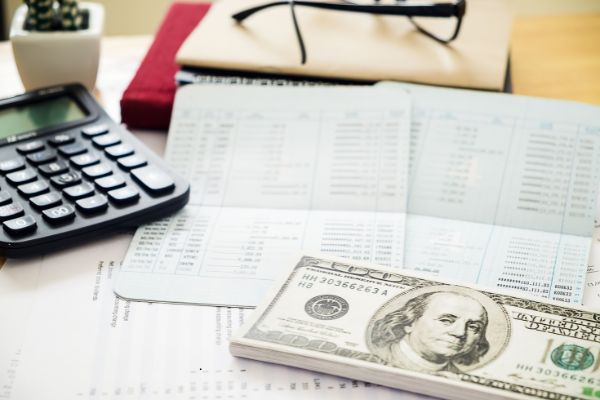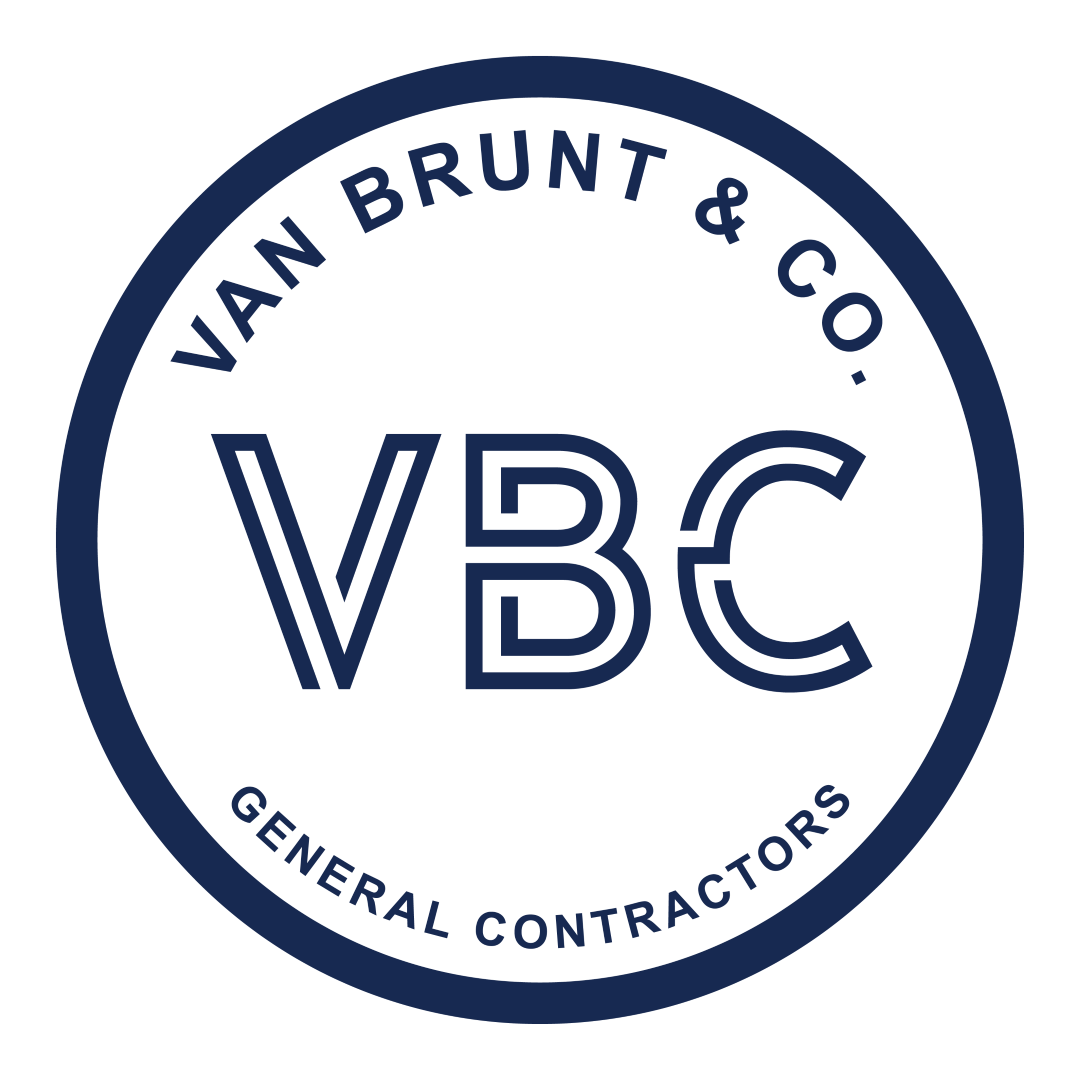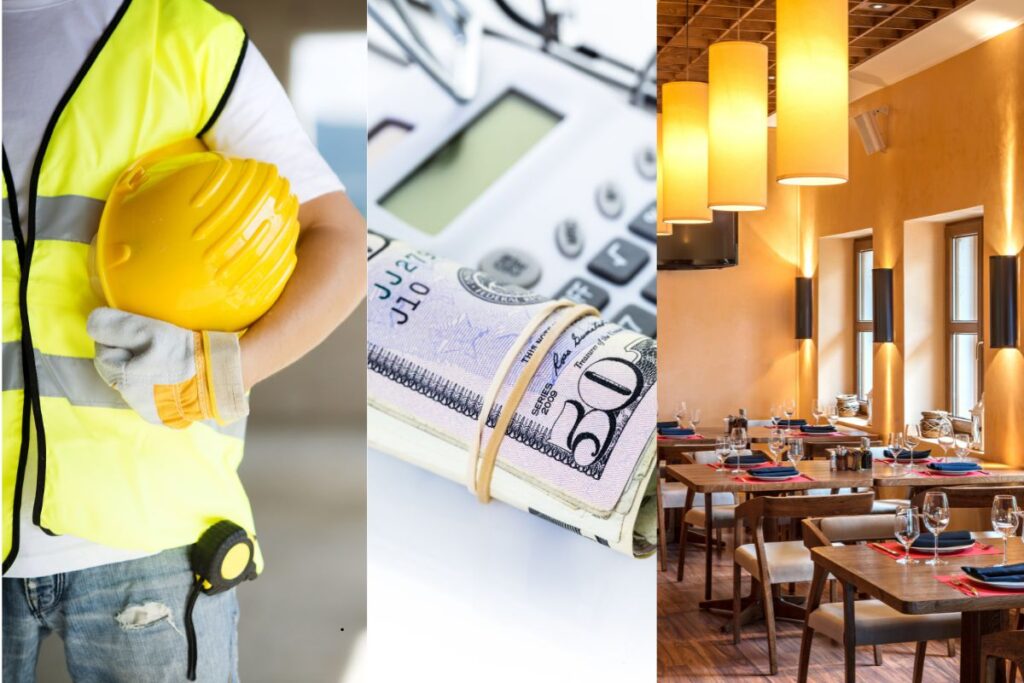Building a restaurant requires significant financial planning and careful budget considerations. Total startup costs vary widely based on multiple factors. Your investment depends on location, restaurant size, and concept type. Urban areas generally demand higher investments than suburban locations.
Major expenses include rent, building construction, and equipment purchases. Prime locations cost more but offer better customer traffic. Renovation needs vary from minor updates to complete overhauls. Commercial kitchen equipment and dining furniture represent significant investments.
Don’t overlook permits, licenses, and working capital requirements. Health permits, business licenses, and liquor licenses vary by location. Additional costs include initial inventory, marketing, and staff training. Plan several months of operating expenses beyond opening costs. This financial cushion helps weather early challenges.
Disclaimer: All prices mentioned are estimates based on industry averages. Actual costs vary significantly by location, market conditions, and specific requirements. These figures serve as general guidelines only. Consult local contractors, suppliers, and real estate professionals for accurate pricing in your area.

Major Cost Considerations in Restaurant Building and Setup
Starting a restaurant involves numerous financial decisions and substantial investments. From choosing between renting or buying property to selecting equipment and furnishings, each choice impacts your budget. Understanding typical costs helps entrepreneurs plan effectively for their restaurant ventures. This comprehensive breakdown explores the various expenses involved in building and setting up a restaurant.
Please note: All prices mentioned are estimates based on industry averages. Actual costs vary significantly by location, market conditions, and specific requirements. These figures serve as general guidelines only. Consult local contractors, suppliers, and real estate professionals for accurate pricing in your area.
Understanding the Investment Numbers
Restaurant property purchases average around $178 per square foot. Renting reduces costs to approximately $159 per square foot. Total startup investments range from modest to substantial amounts. Your final budget depends on furniture, equipment, rent, and décor choices.
These wide ranges reflect numerous variables in restaurant ownership. Each business faces unique circumstances and legal requirements. Understanding these differences helps create realistic financial plans. Market conditions and regional differences also affect pricing significantly.
Breaking Down Costs Per Square Foot
Opening costs typically range from $100 to $800 per square foot. Several factors influence these expenses significantly. New versus existing locations create different cost structures. Equipment needs, materials, location, concept, and size all matter.
The median cost sits around $450 per square foot. Larger restaurants multiply these costs across thousands of feet. This creates substantial total investments for bigger establishments. Small cafes require less investment than full-service dining establishments.
Comparing Purchase Options
Existing restaurants offer varied investment opportunities. Closed establishments might sell for minimal amounts including all equipment. However, these properties often need significant retrofit updates and renovations. Additional retrofit investments bring older locations up to current standards.
Building from scratch requires larger initial investments. New construction projects easily exceed substantial budgets for moderate-sized locations. Custom builds offer complete control but demand higher capital. Consider both options carefully before making your decision.
Essential Utility Expenses
Construction phases still require basic utility services. Water, gas, and electricity remain necessary during building preparation. Medium-sized restaurants face significant monthly utility bills. These ongoing costs impact both construction and operational budgets.
Planning for utility expenses prevents budget surprises later. Factor these costs into your initial financial projections. Some locations offer better utility rates than others. Research local utility providers and their commercial rates beforehand.
Service Equipment Requirements
Kitchen equipment represents a major investment category. Commercial appliances, preparation stations, and storage systems add up quickly. Dining areas need appropriate furniture and atmospheric elements. Quality equipment ensures smooth operations and customer satisfaction.
Backend systems prove equally important for operations. Payment processing, inventory management, and communication systems require investment. Bar setups, music systems, and proper lighting enhance customer experience. Professional signage attracts customers and builds brand recognition.
Consider leasing options for expensive equipment pieces. Some suppliers offer payment plans for large purchases. Used equipment markets provide budget-friendly alternatives for startups. Balance quality needs with available financial resources carefully.
Strategic Location Decisions
Location selection significantly impacts restaurant success rates. High-traffic areas command premium prices but offer better visibility. Strategic locations reduce marketing needs through natural customer flow. Investing in prime locations often provides better long-term returns.
Research demographic data for potential locations thoroughly. Understand your target market’s dining habits and preferences. Consider parking availability and public transportation access. Evaluate nearby competition and complementary businesses carefully.
Location decisions affect more than just rent costs. Labor availability varies between different areas significantly. Some neighborhoods offer better supplier access than others. Local regulations and permit requirements differ by jurisdiction.
Planning for Success
Successful restaurant ventures require careful financial planning throughout. Create detailed budgets covering all potential expenses comprehensively. Include contingency funds for unexpected costs and delays. Review and adjust projections as new information becomes available.

Choosing the Right Restaurant Builders
Selecting qualified builders represents a critical decision in restaurant development. The right construction team transforms your vision into reality efficiently. Poor choices lead to delays, budget overruns, and quality issues.
Experience in Restaurant Construction
Restaurant construction differs significantly from standard commercial building projects. Specialized builders understand unique kitchen workflows, health codes, and dining atmospheres. They know ventilation requirements, grease trap installations, and fire suppression systems.
Request portfolio examples and references from similar restaurant projects. Visit completed projects to assess construction quality firsthand. Previous client feedback reveals valuable insights about working relationships.
Evaluating Credentials and Licensing
Verify all necessary licenses and insurance coverage before signing contracts. Legitimate builders maintain current contractor licenses and comprehensive liability insurance. Workers’ compensation coverage protects you from injury-related lawsuits.
Check Better Business Bureau ratings and online reviews carefully. Professional associations and certifications indicate commitment to industry standards.
Project Management and Pricing
Effective project management keeps construction on schedule and budget. Experienced builders provide detailed timelines with specific milestone dates. They coordinate subcontractors efficiently and maintain clear communication protocols.
Compare pricing structures carefully, whether fixed-price, cost-plus, or time-and-materials contracts. Request detailed bids breaking down all cost components. Extremely low bids often indicate cut corners or hidden costs.
Red Flags to Avoid
Watch for builders demanding large upfront payments before starting. Avoid those unwilling to provide written contracts or warranties. Be cautious of missing insurance documentation or reference avoidance. Unrealistic timeline promises often lead to substandard work.
Making Your Final Decision
Interview multiple commercial builders using consistent evaluation questions. Trust your instincts about communication style and professionalism displayed. Choose builders demonstrating genuine interest in your project success.
Consider long-term relationships beyond initial construction phases. Quality builders become valuable partners as your restaurant grows. Investing time in selection pays dividends throughout your restaurant’s lifecycle.
Conclusion
Opening a restaurant demands careful financial planning and strategic decision-making throughout the process. Understanding startup costs helps entrepreneurs prepare realistic budgets for their ventures. From property selection to equipment purchases, each choice impacts your investment significantly. Choosing experienced builders ensures your vision becomes reality within budget constraints. Their expertise prevents costly mistakes and construction delays during development phases.
Success requires balancing quality needs with available financial resources wisely. Prime locations and quality equipment cost more but provide better returns. Planning for contingencies and working capital protects against unexpected challenges ahead. Take time researching every aspect before committing to major decisions. Your preparation today determines your restaurant’s long-term success and profitability tomorrow.
Frequently Asked Questions
What are the typical startup costs for opening a restaurant?
Startup costs vary based on location, size, and concept. Investments range from modest to substantial amounts. Costs include property, equipment, permits, and working capital.
Should I rent or buy my restaurant property?
Buying averages $178 per square foot and builds equity. Renting costs about $159 per square foot with more flexibility. Consider your goals and available capital.
How do I choose the right restaurant builder?
Select builders with restaurant construction experience and strong portfolios. Verify licenses, insurance, and references thoroughly. Compare bids and avoid extremely low offers.
What equipment costs should I expect?
Kitchen equipment represents major investment categories. Commercial appliances and dining furniture add up quickly. Consider leasing or used equipment for budget management.
How much working capital do I need?
Plan several months of operating expenses beyond opening. Working capital covers rent, utilities, payroll, and inventory. Include contingency funds for unexpected expenses.

